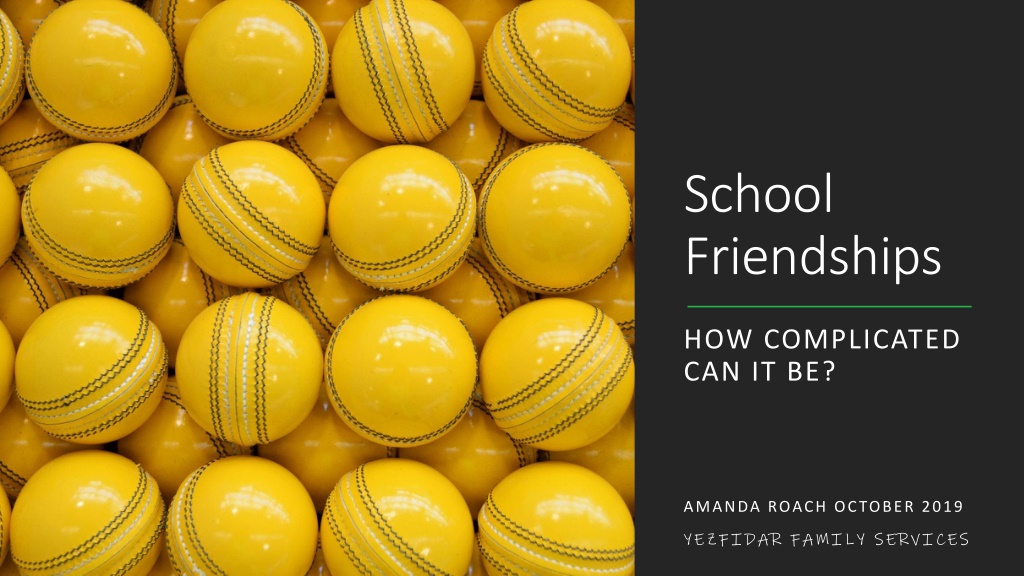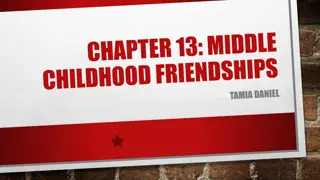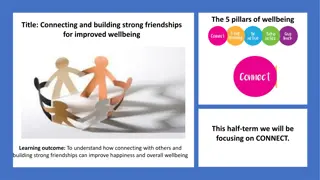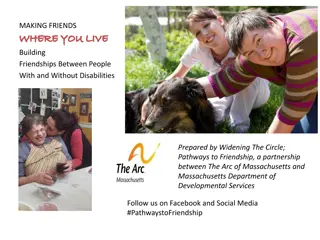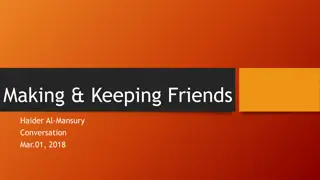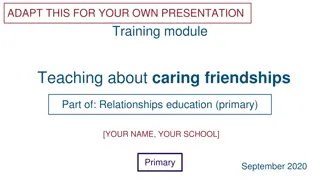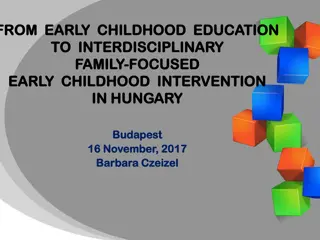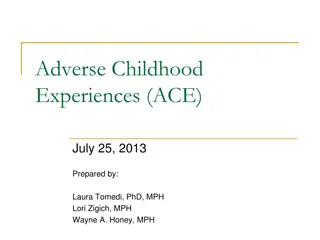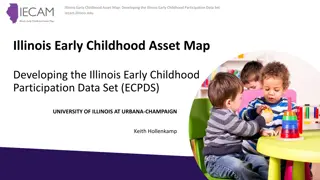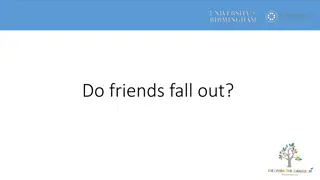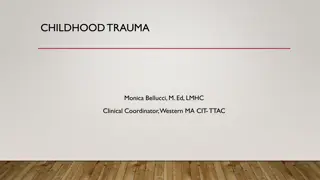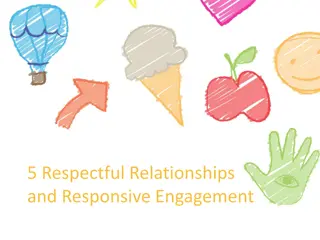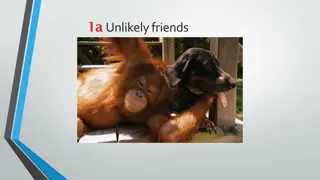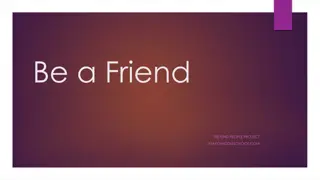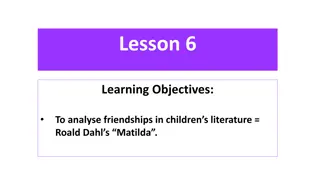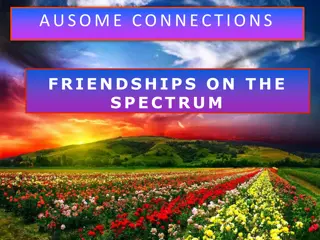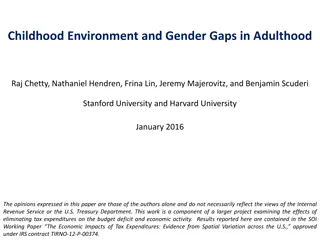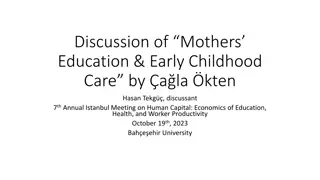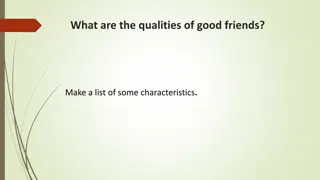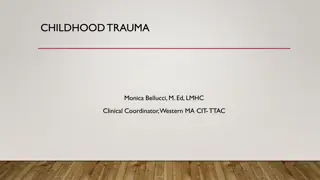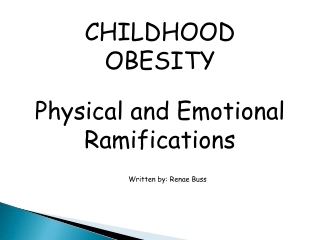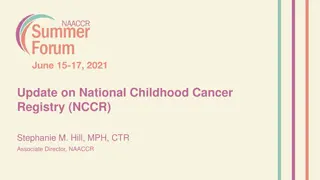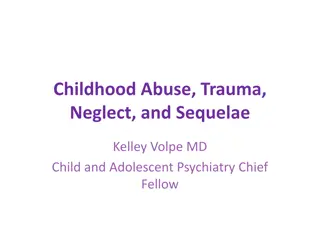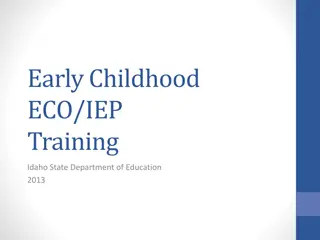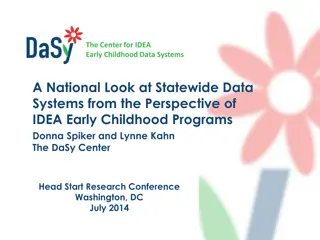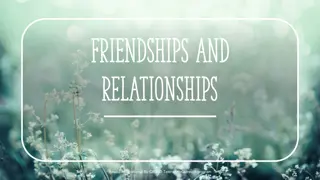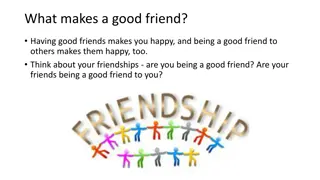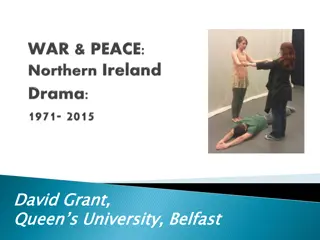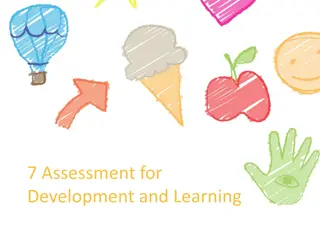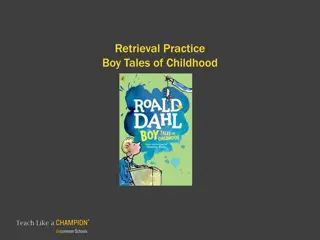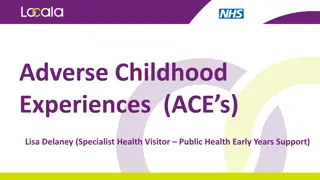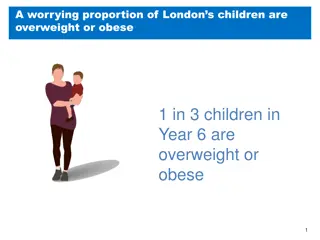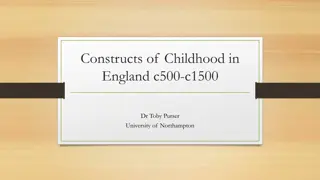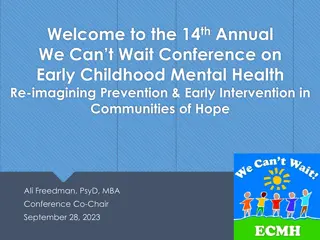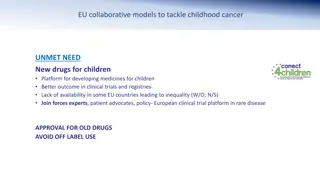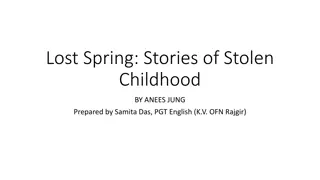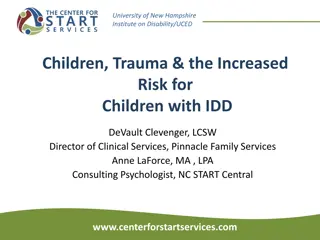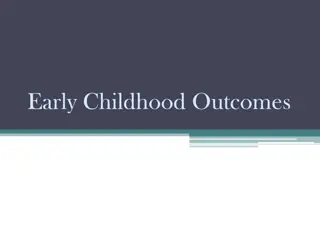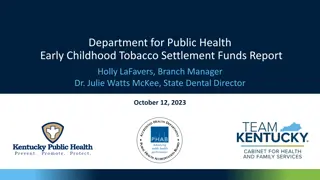The Importance of Building Strong Friendships in Childhood
Friendships play a vital role in a child's development, helping them build self-esteem, a sense of belonging, and emotional skills. Parents and schools work together to guide children from dependence to responsible adulthood, emphasizing qualities like effective communication, courage, and compassion. Developing life skills through friendships is essential for navigating social and emotional challenges later in life.
Download Presentation

Please find below an Image/Link to download the presentation.
The content on the website is provided AS IS for your information and personal use only. It may not be sold, licensed, or shared on other websites without obtaining consent from the author. Download presentation by click this link. If you encounter any issues during the download, it is possible that the publisher has removed the file from their server.
E N D
Presentation Transcript
School Friendships HOW COMPLICATED CAN IT BE? AMANDA ROACH OCTOBER 2019 YEZFIDAR FAMILY SERVICES
Our job as parents Raise our children to be good adults and citizens by: Giving them unconditionallove Providing shelter, food, warmth,safety from harm Developingconnection to family and other people A sense ofbelonging andworthiness Fosteringtrust in relationships and help-seeking Building confidence to be independent in the world
Other qualities we might want them to have include: Communicate effectively Being able to express feelings and label them Courage to have a go, with no guarantee of success Courage to be imperfect Courage to be vulnerable when needed Compassion to be kind and think about others Willingness to share
The job of a child is to become an adult The job of school and family, working together, is to take a baby from: Being a child who is dependent To an adolescent who is forming their identity To become the fully responsible adult we hoped for them to be
So why are friendships important? Most learning takes place within a social context all kinds of learning: * Development of self esteem * Sense of belonging * Having fun, and the good body chemicals released by this * Sharing interests * Building emotional skills and awareness * Sensitivity to the thoughts, feelings and wellness of others * Building resilience * Prevention of future mental illness
And very importantly: Building Life Skills Getting along with other people through co-operation Independence Sorting out conflict Listening and Problem-solving Shielding against social & emotional difficulties later in life [1 in 7 children aged 4-11 have symptoms of an emerging mental illness]
Home life is important This is where children first learn to: Listen and be listened to Take turns and learn about rules Talk to problem-solve Express and label feelings Handle/manage feelings and big emotions Understand that being listened to and getting a hug from a significant adult may be all you need to feel OK Self-soothing
Helping your child to make friends * Get to know their friends at school: Importance in your child s life, personality or influence, families, possibility for invitations and play dates Ask your child s teacher if you aren t sure and need some guidance on this * Help out at school if possible: canteen, sports days, in the classroom, craft activities, excursions * If they are less confident: Shorten playdates Help choose activities they ll enjoy Be available to help out in the visit Give time and space as needed
REMEMBER #1 All kids are different, so some need less friends than others AND will be happy with that
Other ideas These are helpful for both confident kids as well as those who may be hesitant: Find extra-curricular activities sport, dance, art, volunteering these are opportunities to meet others with similar interests Practice social skills if needed introductions, inviting someone to have a turn, asking questions Arrange play dates from these activities as well as school widen their social world Up-skill your child in games, activities so that they can participate and increase fun or enjoyment factors Suggest they take an activity to school for others to participate in Encourage them to ask other kids to help them out they often have good ideas Always ask your child in the first instance What were some of the good/happy things that happened at school today? Discuss any issues with their teacher
Sooooooooo..when do I know there is a friendship problem????? Your child may be generally unhappy; watch their demeanor, listen for any sad or worried words spoken They may not be eating lunch or food you supply There may be injuries not realistically explained They may be losing belongings or things get broken Your child may be demonstrating avoidant behaviour, such as saying they feel sick, not wanting to go to school until just on the bell There may be outright school refusal There may be evidence on social media if they are using this
Frenemies This is a common feature of childhood, adolescent and even adult relationships Usually these are friends who are destructive in some way; they may tell stories behind your back, use you in some way (such as for money), manipulate you to get an outcome they want, or generally cause you to have negative feelings and thoughts, making you unhappy with them or yourself, and your responses to them. Some things to consider: # It s important that your child can communicate openly about this problem # Is your child encouraging this behaviour, not giving clear messages to the frenemey that they dislike what they are doing? # Problem-solve with your child what is actually going on where, what, when, who, how .Look at what happens, before, during and as a consequence of the actions
More ideas for parents, dealing with frenemies This is an area kids will need a lot of support help with. It s not quite bullying, but not far from it either as it is more subtle If it is causing a lot of grief, then it is best to end the friendship. This is best done in a very clear and direct manner and you may need to practice this with your child [e.g. I don t like the way you always talk about me behind my back, it makes me really unhappy. I don t want to be your friend any more. Realise that there will be consequences because of this action: your child may be more relaxed and happy because they have taken a stand; perhaps fall-out with the frenemy becoming a bully. This will need to be dealt with as for any bullying behaviour. PLEASE MONITOR THIS! Do not confront the frenemy or the family; your child needs to feel empowered to deal with this situation. They need your support, not your emotional outburst. Don t put additional consequences on your child which will have an opposite affect, such as criticising the frenemy or banning any contact with them. Bottom line is that the toxic relationship needs to change by ending it at this point.
BULLYING BULLYING This set of behaviours is often the most worrying. This set of behaviours is often the most worrying. This can be devastating for your child s self esteem. If you suspect this is happening: Listen to your child and get a good sense of what s happening Ask questions for information, but not to interrogate Stay calm; be a good role model and tell them you will help problem-solve this Summarise the problem to demonstrate you listened and understand Reassure them it is normal to feel upset Make sure your child understands that it is not their fault
More.. You could relate a friendship problem of your own Reassure your child that they can always talk with you Ask the school s teachers, counsellor or librarian about good books or material that could help both you and your child Praise your child for talking to you about what has happened or what is worrying them Let them know that bullying behaviour is not OK Avoid negative comments or actions Explain to your child some of the reasons that other children become bullies, such as not knowing how to be nice to others, trying to make themselves feel better when they have a problem, or even not knowing this is bullying
Work TOGETHER with the school It s important to have a consolidated plan! Make an appointment with your child s teacher to discuss it Make sure it is in a private location Be calm presenting your concerns you want their help Ask for the teacher s view Be assertive but not angry or accusing if you feel fobbed off End the meeting with an agreed plan Follow up, keep in touch
REMEMBER #2 Results don t happen overnight!
I Id de ea as s f fo or r y yo ou ur r c ch hi illd d t to o t tr ry y It s important for your child to have some strategies to use if they are being harassed or bullied. This gives them some feelings of taking control, problem-solving and is generally good practice for events they ll likely experience throughout life. Ignore it Move away from the bully Tell the bully (loudly) to stop especially if they are teasing or name-calling Avoid high-risk places, without avoiding where you need to be Stay around other people (other friends, adults, the teacher) Ask others to help (a bully is less likely to strike then) Tell the teacher or other grown-ups, especially if there is physical assault or theft Check with your child what they have already done, if anything has worked before
REMEMBER #3 Your kids learn mostly from observing you - Be a good role model! Always treat others with kindness and respect
REMEMBER #4 Your child doesn t need you to be a Lawn mower, or Helicopter parent The idea is to give them the skills they will need to live THEIR life!
REMEMBER #5 A handout for you! This applies to all children, of any age
